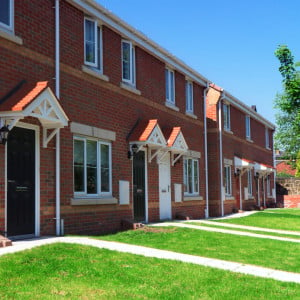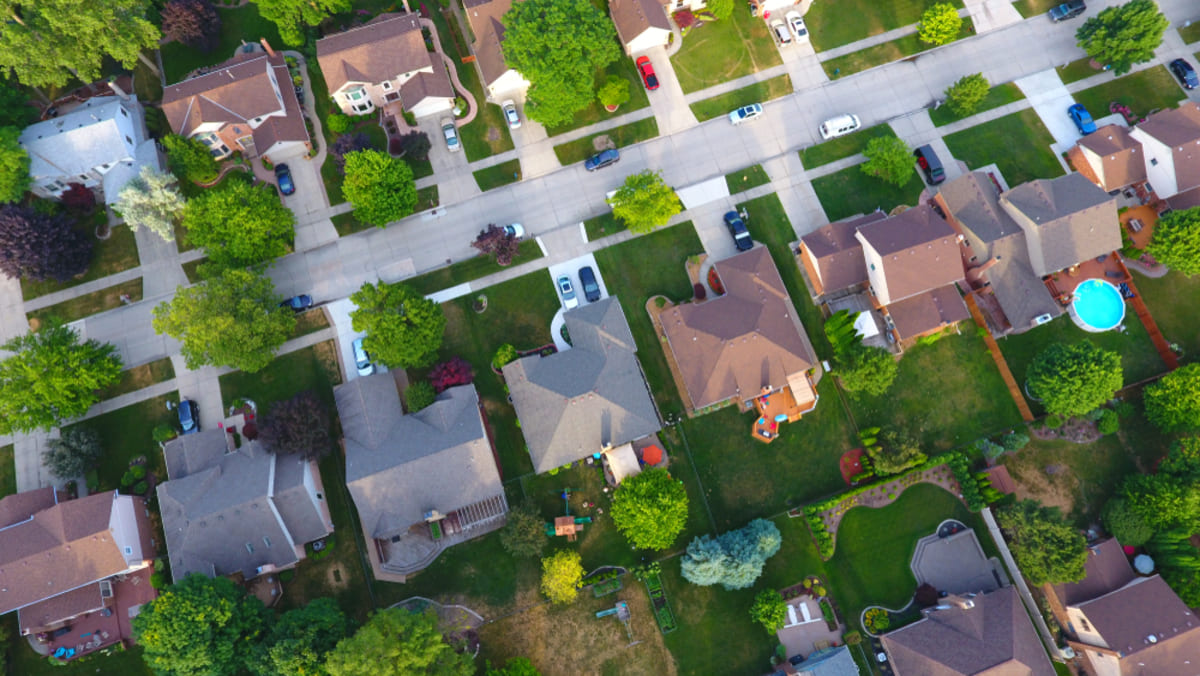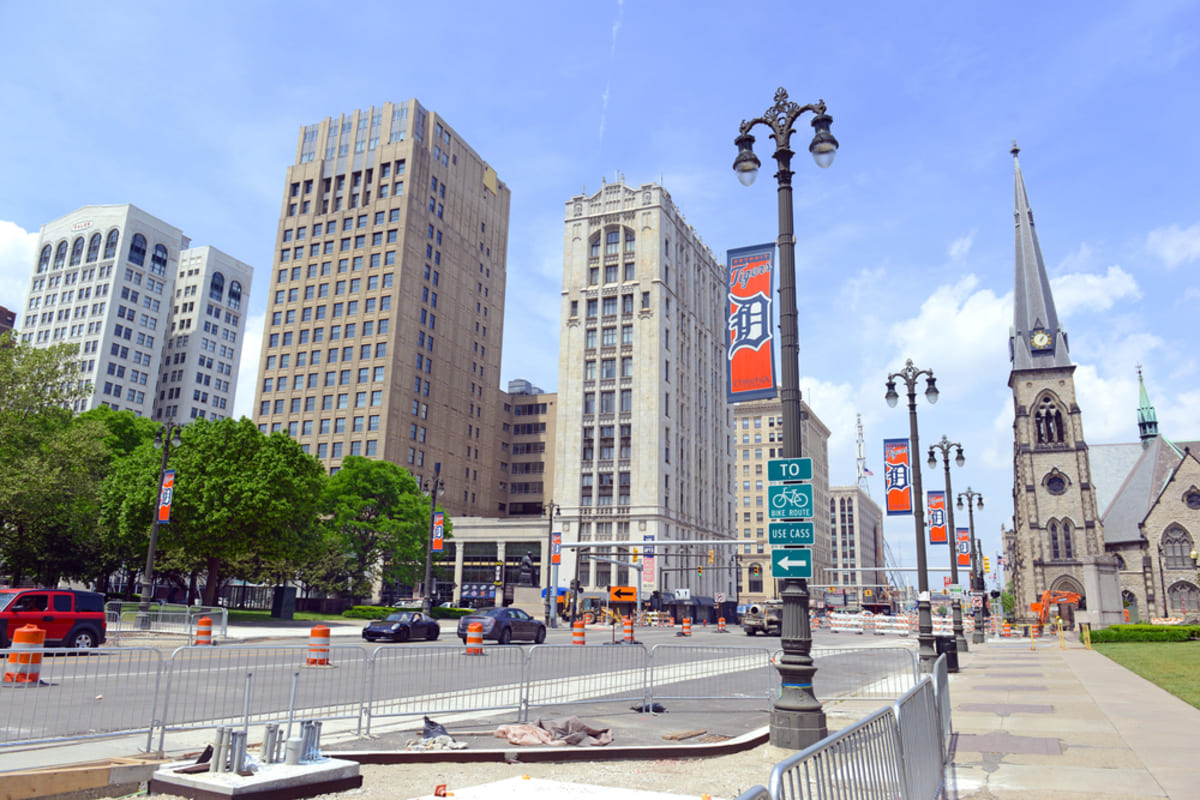Listen to the article
Investing in Properties Near Detroit's Art and Entertainment Districts
Detroit’s real estate market is experiencing a renaissance, and nowhere is this more evident than in the city’s art and entertainment districts. These cultural hotspots are not just about vibrant murals, historic theaters, or eclectic music scenes—they are the beating heart of Detroit’s resurgence. For savvy investors, these districts offer more than just aesthetic appeal; they present prime opportunities for real estate investments that promise significant returns.
As Detroit continues to rebuild and reimagine itself, properties near these cultural hubs are becoming some of the most sought-after real estate in the city. In this blog, our team at Own It Detroit will explore how investing in properties near Detroit’s art and entertainment districts can be a strategic move that combines cultural engagement with financial growth.
Art and Entertainment Zones: Investing in Detroit
Detroit is home to several renowned art and entertainment districts that are cultural landmarks and thriving centers for real estate investment. These zones are at the heart of the city’s resurgence, offering a blend of historic charm and modern amenities that attract diverse residents and visitors.
Midtown Detroit: A Cultural Powerhouse
Midtown Detroit is arguably the city’s most prominent art and entertainment district. It’s home to the Detroit Institute of Arts, the Museum of Contemporary Art Detroit (MOCAD), and the Detroit Symphony Orchestra, among other cultural institutions. This area is also known for its vibrant nightlife, eclectic dining scene, and annual events like DLECTRICITY, a light and art festival that draws large crowds.
Investing in Midtown offers the potential for high returns, driven by strong demand for housing and commercial spaces. The area’s proximity to Wayne State University makes it a popular choice for student housing and rental properties as well. With property values steadily appreciating, Midtown remains a prime location for investors seeking long-term gains and steady rental income.
Corktown: Detroit’s Oldest Neighborhood with a Modern Twist
Corktown, Detroit’s oldest neighborhood, has transformed significantly over the past decade. Once known primarily for its historic homes, Corktown is now a hub of trendy restaurants, boutique shops, and vibrant art spaces. The opening of Ford’s new mobility innovation campus in the iconic Michigan Central Station has further boosted the neighborhood’s appeal, attracting tech startups and young professionals.
For real estate investors, Corktown offers an opportunity to invest in a neighborhood that combines historic charm and modern amenities. The demand for housing in Corktown is high, and properties often command premium prices. Investors who secure properties here can benefit from appreciation and strong rental demand.
The District Detroit: A Sports and Entertainment Hub
The District Detroit is a 50-block area encompassing the city’s major sports arenas, including Little Caesars Arena, home to the Detroit Red Wings and Detroit Pistons. This district is also home to the Fox Theatre, a historic venue that hosts concerts, Broadway shows, and other entertainment events.
Real estate investments in The District Detroit are attractive due to the area’s steady stream of visitors and ongoing development projects. The district’s central location and easy access to public transportation make it a convenient and desirable place to live, particularly for young professionals and sports enthusiasts. Investors can capitalize on the demand for short-term rentals and luxury apartments in this bustling area.
Cultural Hubs and Investments: Detroit Real Estate Appeal
Investing in properties near cultural hubs offers financial rewards and contributes to the ongoing revitalization of Detroit’s neighborhoods. These areas are often at the forefront of the city’s comeback story, attracting residents who value the arts, creativity, and community.
The Impact of Cultural Districts on Property Values
One of the most significant factors driving real estate investment in Detroit’s cultural districts is the economic impact these areas have on property values. Cultural districts are often centers of activity and engagement, drawing visitors from across the city and beyond. This influx of people stimulates local businesses, increases demand for housing, and boosts the overall desirability of the area.
For example, the development of the Detroit Opera House and surrounding theaters in the downtown area has not only revitalized the local arts scene but also increased property values in nearby neighborhoods. As more cultural institutions establish themselves in a district, the area often sees a corresponding rise in property prices, making it a profitable option for investors.
Investors who recognize the economic potential of these cultural districts can capitalize on the upward trend in property values. As these areas continue to develop and attract new residents, the demand for residential and commercial properties will likely grow, offering significant opportunities for long-term appreciation and rental income.
Supporting Local Businesses
Cultural districts often catalyze growth for local businesses, including restaurants, cafes, boutiques, and art galleries. This thriving business environment enhances the area's appeal, making it an attractive destination for residents and visitors. Properties located near these bustling commercial zones tend to see higher occupancy rates and can command premium rents.
For investors, supporting local businesses can also be a strategic move. By investing in properties that house or are located near successful local enterprises, investors can contribute to the economic vitality of the neighborhood, which in turn drives property values higher. Additionally, properties in vibrant commercial districts are often more resilient to economic downturns, as the demand for prime retail and residential space remains strong.
 Proximity Pays: Real Estate Investments in Detroit's Vibrant Districts
Proximity Pays: Real Estate Investments in Detroit's Vibrant Districts
Proximity to Detroit’s cultural and entertainment districts is a crucial factor that can significantly enhance the value of real estate investments. Properties within walking distance or a short commute from these areas are often more desirable and can command higher rents and sale prices.
Walkability and Convenience
One of the major selling points of properties near Detroit’s cultural districts is their walkability. Residents and visitors alike appreciate the convenience of walking to restaurants, theaters, museums, and other attractions. This convenience appeals particularly to younger demographics, such as millennials and Gen Z, who prioritize lifestyle and experiences.
Investors who focus on acquiring properties with high walkability scores can tap into this demand, attracting tenants willing to pay more for the ability to live in a vibrant, walkable neighborhood. In addition, properties in walkable areas tend to have lower vacancy rates, providing a steady stream of rental income.
Short-Term Rentals and Tourism
Detroit’s cultural districts also attract many tourists, creating opportunities for short-term rental investments. Platforms like Airbnb have made it easier for property owners to rent their homes or apartments to visitors looking for unique, local experiences. Properties near popular attractions such as the Motown Museum or the Detroit Opera House are particularly well-suited for short-term rentals.
Investors pursuing this strategy can benefit from higher rental yields than traditional long-term leases. However, it’s crucial to stay informed about local regulations regarding short-term rentals, as these can vary by neighborhood and impact the profitability of the investment.
Future Growth and Development
Investing in properties near Detroit’s cultural districts also offers the potential for future appreciation as the city grows and develops. Many of these areas are undergoing significant redevelopment, with new projects that aim to enhance the cultural and economic landscape of the city.
For example, the Detroit Riverfront Conservancy’s efforts to transform the riverfront into a vibrant public space have spurred new developments and increased property values in the surrounding neighborhoods. As these projects come to fruition, investors who have secured properties early on will likely see substantial ROIs.
Investing Near Detroit's Cultural Hotspots
Detroit’s cultural hotspots are more than just places of artistic expression and entertainment; they are engines of economic growth that offer lucrative opportunities for real estate investors. By focusing on areas with strong cultural identities, investors can tap into a financially rewarding and socially impactful market.
Long-Term Investment Strategies
Investing in properties near Detroit’s cultural districts is not just about short-term gains; it’s also about building long-term wealth. By adopting a buy-and-hold strategy, investors can benefit from rental income and property appreciation over time. This approach is particularly effective in neighborhoods still in the early stages of revitalization, where property values are expected to rise as the area develops.
Additionally, long-term investors can leverage their properties as assets for future projects, such as redevelopment or conversion into mixed-use spaces. This flexibility allows investors to adapt to changing market conditions and maximize their returns over the life of the investment.
Diversifying Your Portfolio
Diversification is critical to any successful investment strategy, and Detroit’s cultural districts offer a range of options for investors looking to diversify their portfolios. From residential properties in historic neighborhoods to commercial spaces in bustling entertainment zones, there are opportunities to invest in different types of real estate that cater to various market segments.
By spreading investments across multiple properties and districts, investors can reduce risk and increase their chances of achieving consistent returns. Diversification also allows investors to take advantage of different market dynamics, such as the growing demand for urban living or the rise of remote work, which has increased interest in properties outside traditional business districts.
 Invest in Detroit’s Cultural Districts with Own It Detroit
Invest in Detroit’s Cultural Districts with Own It Detroit
Investing in properties near Detroit’s art and entertainment districts offers a unique blend of financial opportunity and cultural engagement. These areas are at the heart of the city’s resurgence, making them prime locations for real estate investments that promise both appreciation and rental income. Investors can capitalize on Detroit’s ongoing growth and development by focusing on properties in these vibrant districts while contributing to the city’s cultural renaissance.
At Own It Detroit, we specialize in helping investors navigate the Detroit real estate market and identify the best growth opportunities. Our team of experts is dedicated to providing the insights and support you need to succeed in this dynamic market. Whether you’re looking to invest in Midtown, Corktown, or any of Detroit’s other cultural hotspots, we’re here to guide you every step of the way.
Ready to unlock the potential of Detroit’s real estate market? Download our guide, "Buying Investment Properties in Detroit: A Guide," and discover strategies to help you achieve your investment goals.








